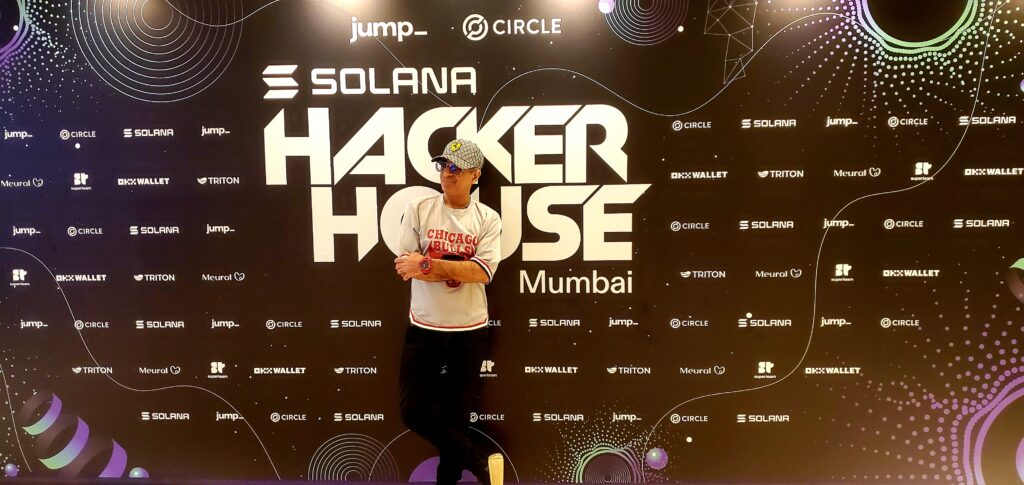SOLANA SOLITAIRE
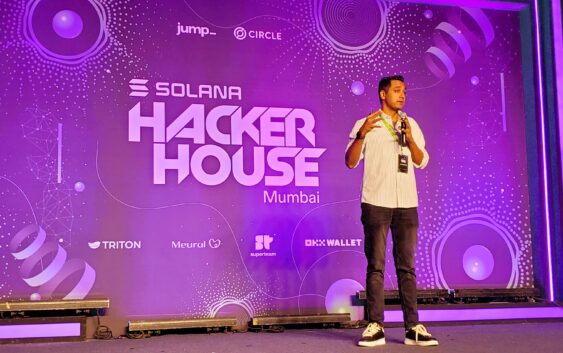
The Solana Foundation hosted the four-day offline event – Solana Mumbai Hacker House – Sept 2023, gave an opportunity to builders for hands-on experience and mentorship from Solana Labs’ core engineers and other ecosystem teams, brought together the most talented individuals in the Solana community. The Hacker Houses, hosted by core engineers and foundation team members, provided a unique platform for building, learning, and collaborating.

Attendees worked on their respective projects, made new colleagues, team members or integrated into existing ones, received guidance from Core Solana Lab engineers, and engaged in conversation and learning about their respective ideas and startups/projects. Solana Hacker House provided educational programming on Solana, DevFinance, and NFTs to attendees, showcasing their expertise through workshops, panel discussions, and presentations. Attendees also had the opportunity to participate in partner-hosted workshops, panels, and presentations.

Web3 is an ecosystem that unites founders, token owners, developers and users to build a decentralized, user-governed Internet. In just a few years, Web3 has gone from a basic infrastructure and vision of a better Internet, to enabling exciting new use cases in a wide range of industries. Developer tools have been developed to connect existing web2 developers to the web3 ecosystem. Scalability solutions are getting close to the point where transaction prices will be competitive with many more web2 services. Core web3 infrastructure providers are connecting the web3 ecosystem to third-party systems and assets.
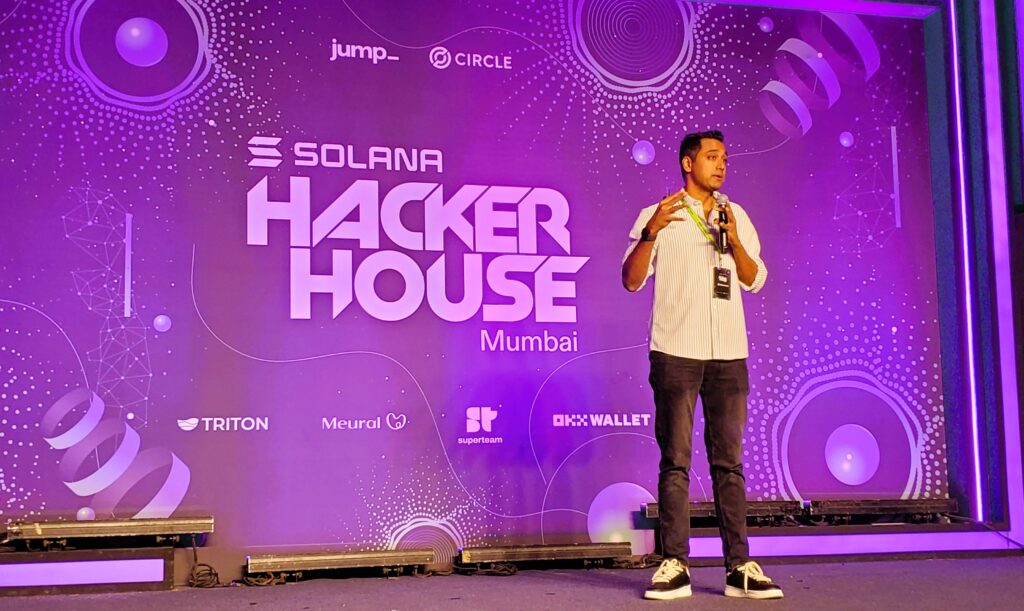
Akshay from Solana gave a superb talk on the future of growth, governance and ecosystem of technology, web3, blockchain, resonating well with Solana foundation’s culture & philosophy.
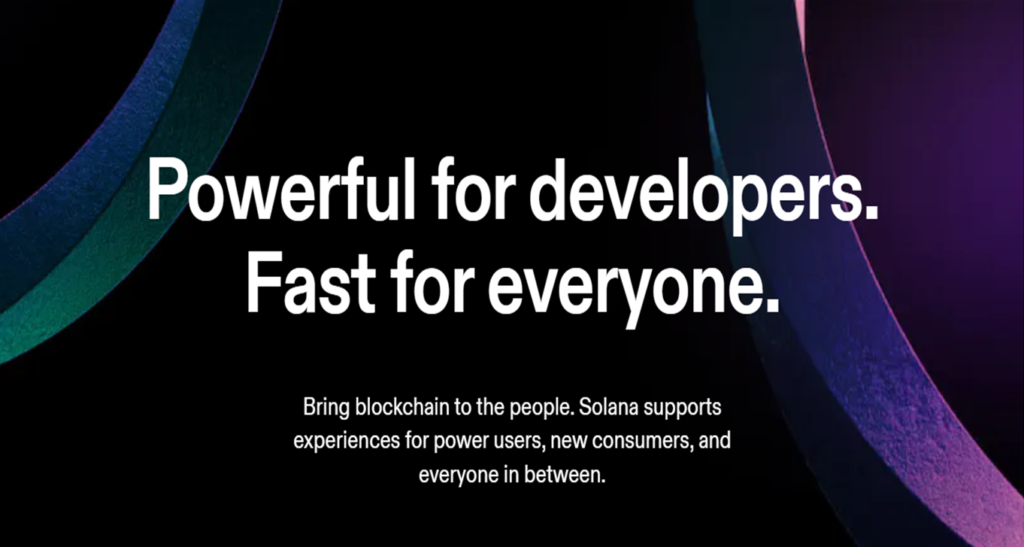
Web3 can assist grow developers and coders by fostering more community-driven economies: Open-source development fosters cooperation and information exchange, resulting in a friendly and welcoming developer community. Developers may use blockchain technology to construct new economic models, such as token-based economies, that reward and empower community members.
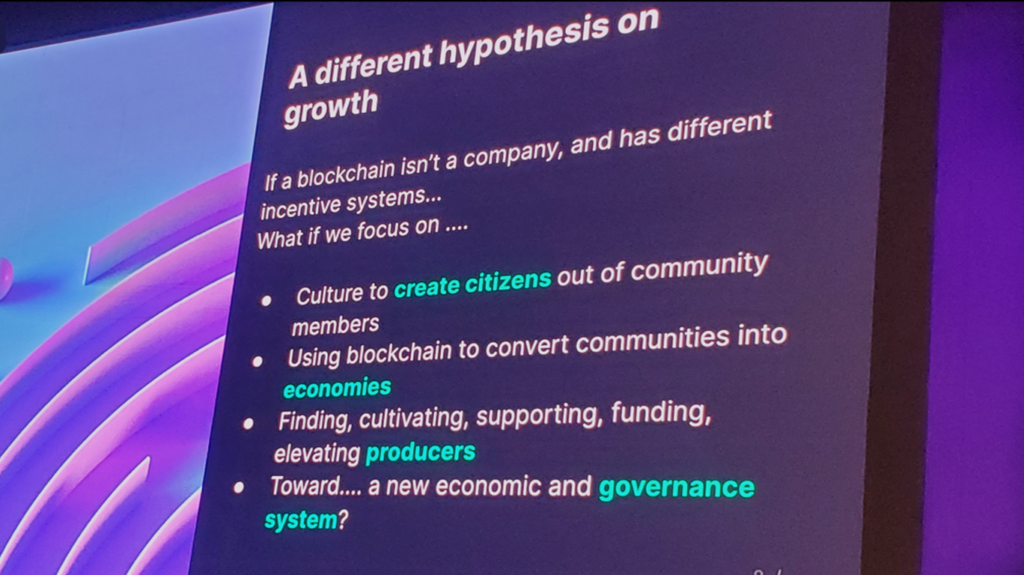
Decentralised governance systems give community members a role in the economy’s development, encouraging a sense of ownership and investment.
The usage of NFTs and other digital assets allows for the development of digital markets and economies that are not constrained by location or traditional financial systems.
Communities may help Web3 economies thrive by doing the following:
Community-driven governance: By giving individuals of the community a voice in decision-making, the economy becomes more responsible and transparent.
User-generated material: Communities may produce and share useful content such as tutorials, guidelines, and reviews, which can boost acceptance and drive growth.
Network effects: A larger community can generate a network effect, in which the economy’s value rises with each new member.
Community-driven marketing: Communities may help the economy by spreading the word, attracting new members, and creating buzz.
By giving support, knowledge, and evangelism, communities will play an important role in the creation and success of a Web3 economy.
Governance that is transparent and accountable: Smart contracts and blockchain technology will enable automated and verifiable governance systems, lowering the danger of corruption and mismanagement.
Trustless and permissionless systems: These will provide more access, fairness, and creativity since anybody may join without requiring consent.
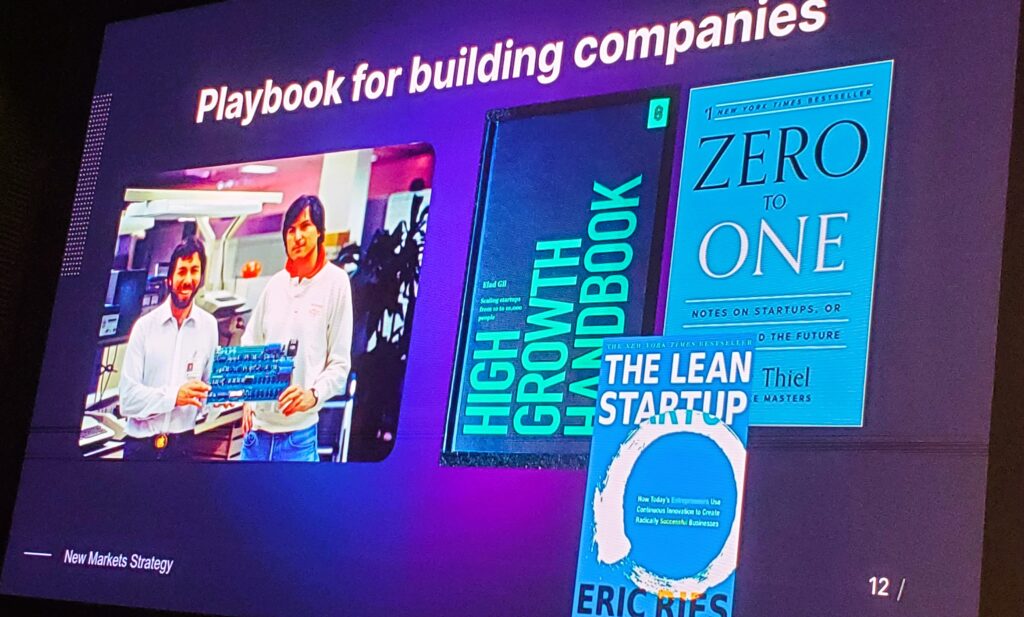
Strong recommendation for startup entrepreneurs to read the following books –
1. High Growth Handbook
2. Zero to One by Peter Thiel
3. The lean startup by Eric Ries
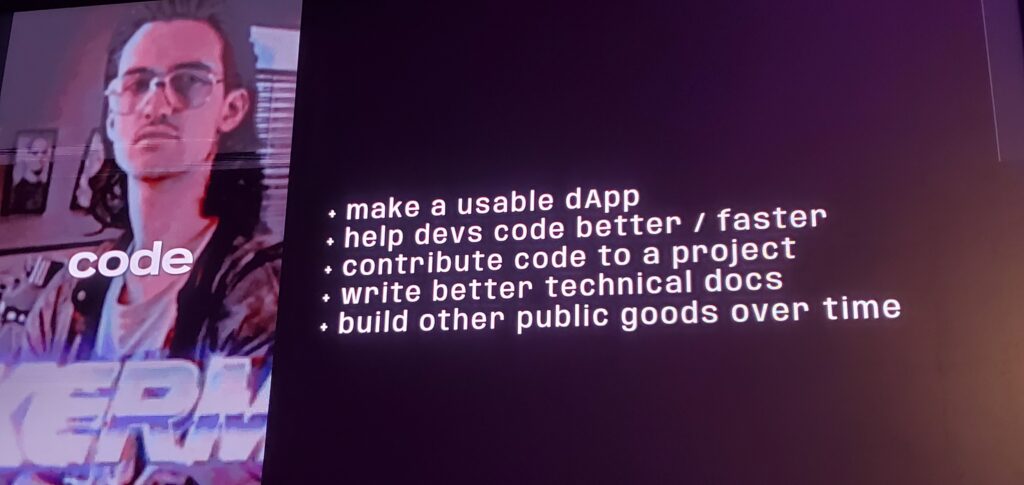
Developers that are now or plan to build in the Solana ecosystem are the primary target of hacker homes. It is critical to comprehend why this is so. Programmable blockchains such as Solana, Polygon, and Ethereum are all attempting to create a foundation on which the next generation of internet programmes will be developed. It is critical for them to have as many developers on board and building as possible to catalyse and restart this process.
According to the 2022 Electric Capital Developer Report, which trawled code contributions across open source repositories, over 72% of monthly active developers (devs) are working on blockchains that are not part of the Bitcoin and Ethereum networks.
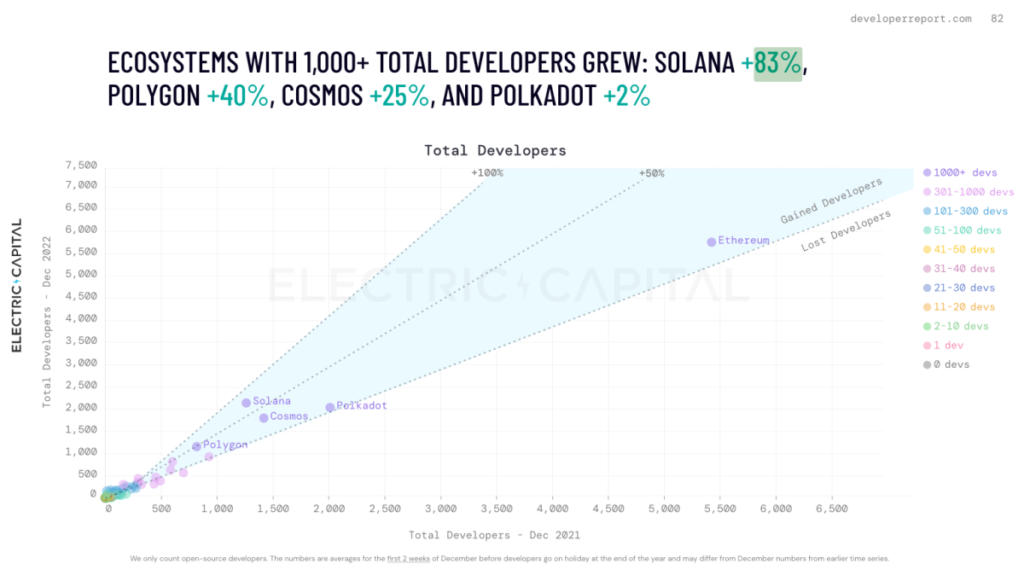
Solana had the most new developers join the ecosystem, with its developer count increasing by 83%, the quickest of any major blockchain. In comparison, Polygon experienced a 40% increase in developer count, Cosmos had a 25% increase, and Polkadot saw a 2% increase, according to the research.
The Solana team said that this report shows that “the total number of developers on Solana has grown more than 10x since 2018, more than any other blockchain.”
“Developers will build where they see technology advantages, and Solana delivers faster transactions and lower costs than alternatives,” Solana co-founder Raj Gokal told TechCrunch. “But they will also build where they see other kinds of advantages, such as an active community.”
The growth of the developer ecosystem on Solana can be attributed to a mix of education efforts and resources, community engagement, technical advantages and business opportunities, Gokal said.
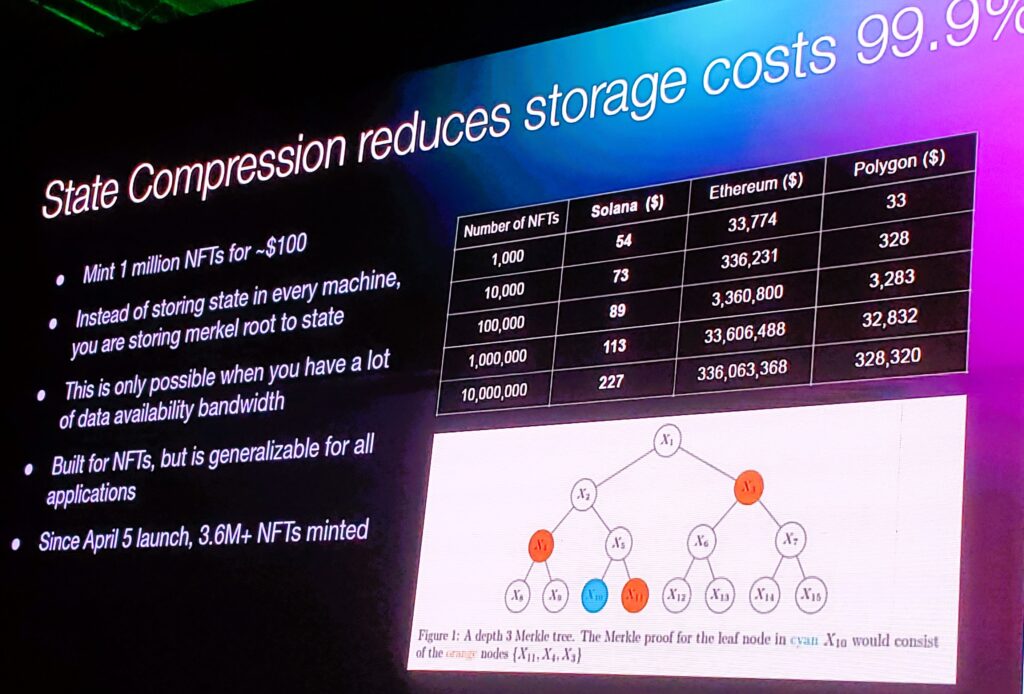
Solana’s innovative ultra-low-cost Compressed NFTs has been reaching staggering minting volumes and continues to break previous records, a new feature designed to reduce the cost of minting NFTs on the Solana blockchain.
This innovation uses Merkle Trees, a data structure widely used across blockchains, to bring down the cost of minting the cNFTs. This is because scanning the items in a Merkle Tree scales logarithmically, meaning that minting larger numbers of NFTs results in lower costs per cNFT.
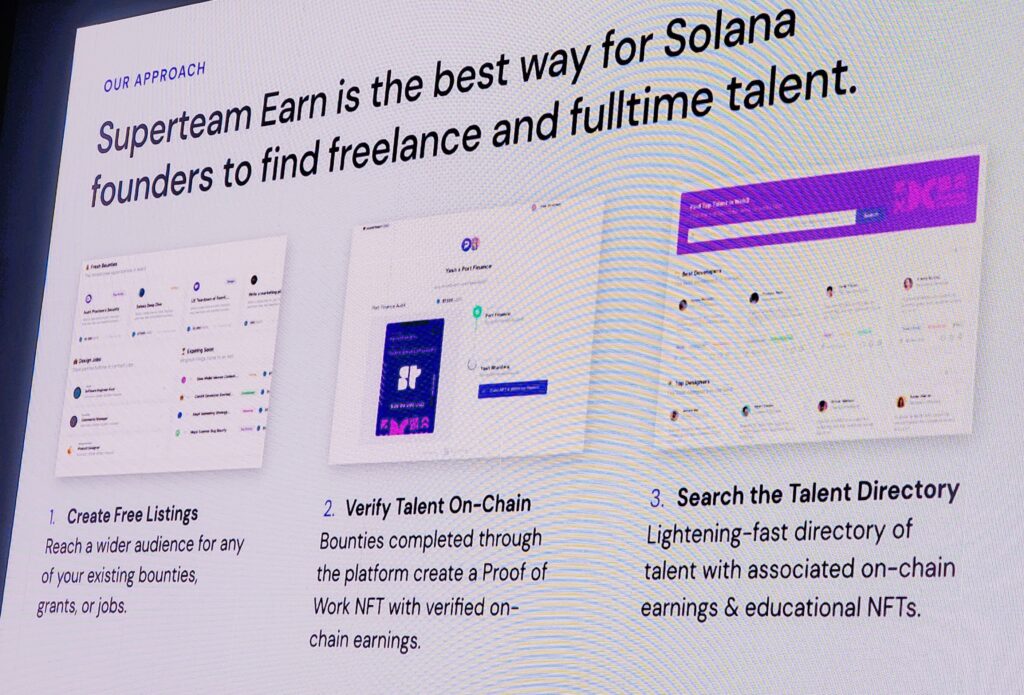
Solana entrepreneurs go to Superteam Earn to locate world-class talent for their initiatives. Post bounties, meet your next teammate, and get things done quickly. Superteam Earn enables Web3 developers, designers, and others to locate income opportunities. Completing an on-chain reward will earn you a Proof of Work NFT, allowing you to begin constructing your on-chain résumé. The mission of Superteam Earn is to create technologies for the future of work that are driven by crypto rails. Superteam Earn is the result of a year’s worth of learnings from developing a community that has accomplished $750k in missions, bounties, and awards. This platform is the first of many that will follow.
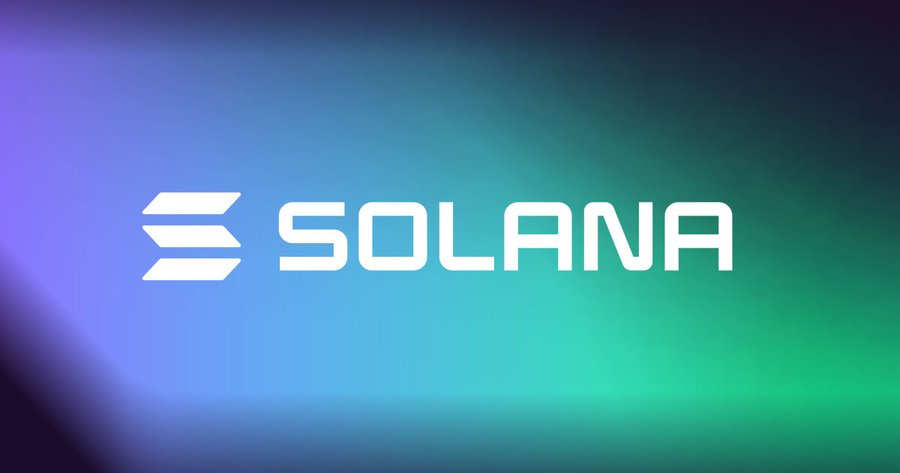
Solana blockchain is a mechanism for scaling bitcoin networks, allowing them to run more quicker. The programmers used a variety of sophisticated technologies and procedures known as Proof of History.
The fast-growing smart contracts and open source blockchain system are key advantages. Solana is the first initiative to attain such achievement in such a short period of time. The open source code enables the development of DApps in the ecosystem, giving security, financial rewards, and resistance to censorship.
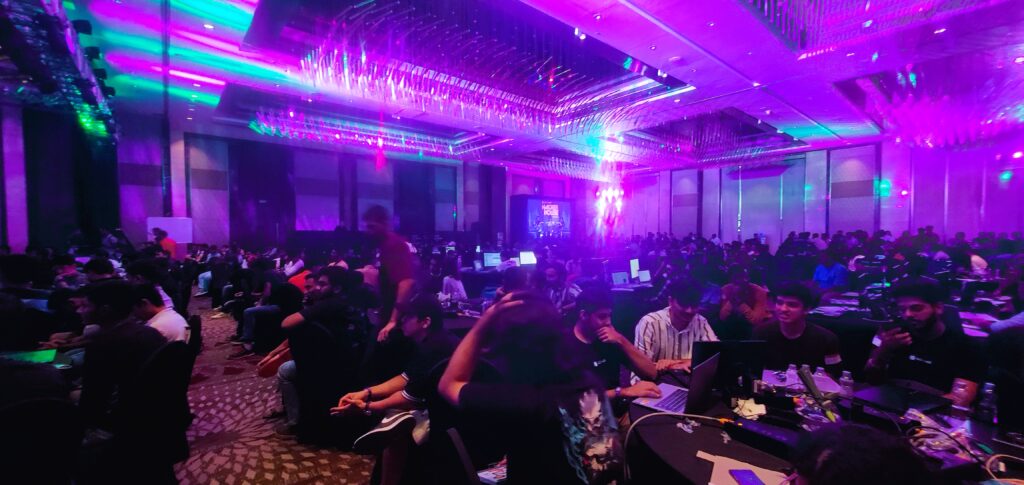
Solana’s central principle is Proof-of-History (PoH). According to consensus, the model utilises a series of transaction protocols to give a bandwidth of more than 60 thousand transactions per second. PoH overcomes scale and time problems for certain consensus orders on the blockchain.
Furthermore, the blockchain employs the Proof-of-Stake technique to increase bandwidth.
Solana is a fantastic decentralised platform for NFT solutions, DeFi applications, and smart contracts. It was made possible thanks to the LLVM system and the Rust programming language. Developers may simply migrate applications and protocols from existing blockchain ecosystems to this one.
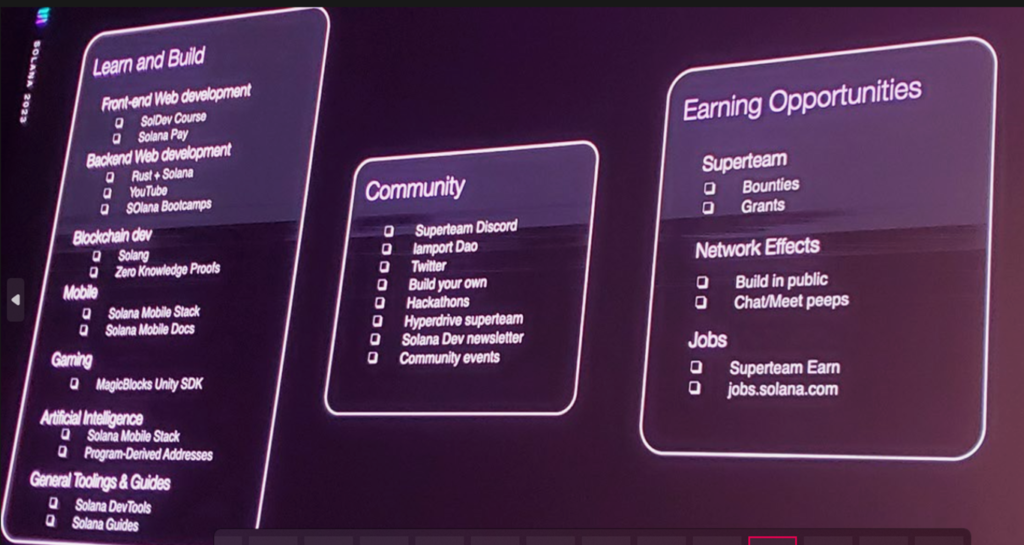
Ayush Singh Chauhan – Developer Relations – Solana Foundation presented on how Solana assists developers/coders to build their products/services on Solana blockchain, mobile applications, gaming, API, how to build your community, how to earn by way of bounties, network effects, the entire A to Z of building to launching to succeeding, just have the will to learn and explore.
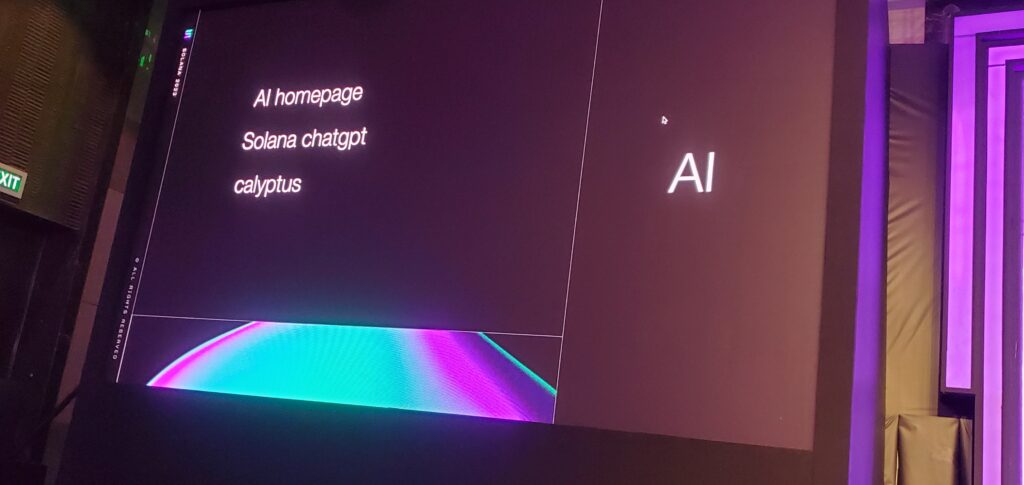
In a presentation by Jonas Hahn, he highlighted about AI integration in the Solana blockchain and chatgpt. Solana blockchain has become the first Layer 1 blockchain to integrate artificial intelligence with a ChatGPT plugin developed by Solana Labs.
Solana Labs has developed an open-source reference implementation for a ChatGPT plugin, which allows users to communicate with the Solana network directly from ChatGPT. The plugin will allow users to check wallet balances, transfer tokens, and potentially purchase NFTs.
Solana Labs’ ChatGPT plug-in has been formally incorporated into the Solana Foundation’s network. Initially, the plug-in will be aimed at end users, with an emphasis on assisting them in navigating the web3 area. It may be used to purchase and sell NFTs, transfer tokens, check transactions, evaluate data, and identify NFT collections based on their floor price. Solana is integrating ChatGPT into an RPC node, which will read data from numerous on-chain sources and distribute it to querying users.
Solana Audits AI is an LLM-powered CLI tool meant to improve programme security, possible with only one command, you can now safeguard your programme. The programme finds vulnerabilities, pinpoints their location, and recommends a patch.
The Solana Foundation has launched a $10 million grant fund to support projects developing AI tools for the Solana ecosystem. This funding programme is open to everyone, including people, teams, governments, non-profit organisations, businesses, and institutions.
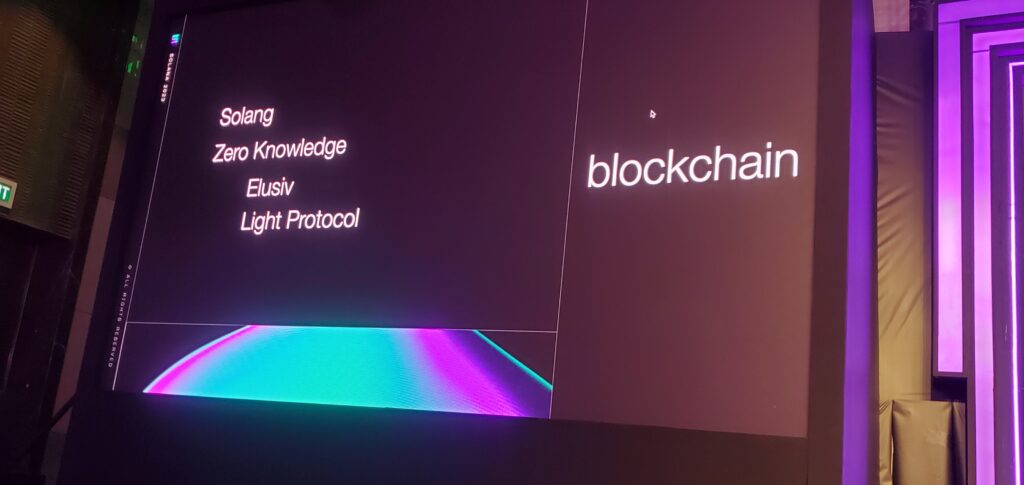
Solana’s zero-knowledge proofs (ZKPs) are tools that let users to establish certain aspects of encrypted material. In this procedure, one party (Prover) can prove to the other side (Verifier) that a given assertion is true without giving any more information.
ZKPs allow blockchain applications to limit access to data within specific blocks while keeping sensitive information hidden. Financial firms, for example, can check client facts such as age, creditworthiness, or account balances without accessing sensitive personal data.
Users can use zero-knowledge proofs to show certain aspects of encrypted data. The majority of zero-knowledge proofs employed in the confidential extension are very tiny systems that are especially developed for the confidential extension’s simple use-case.
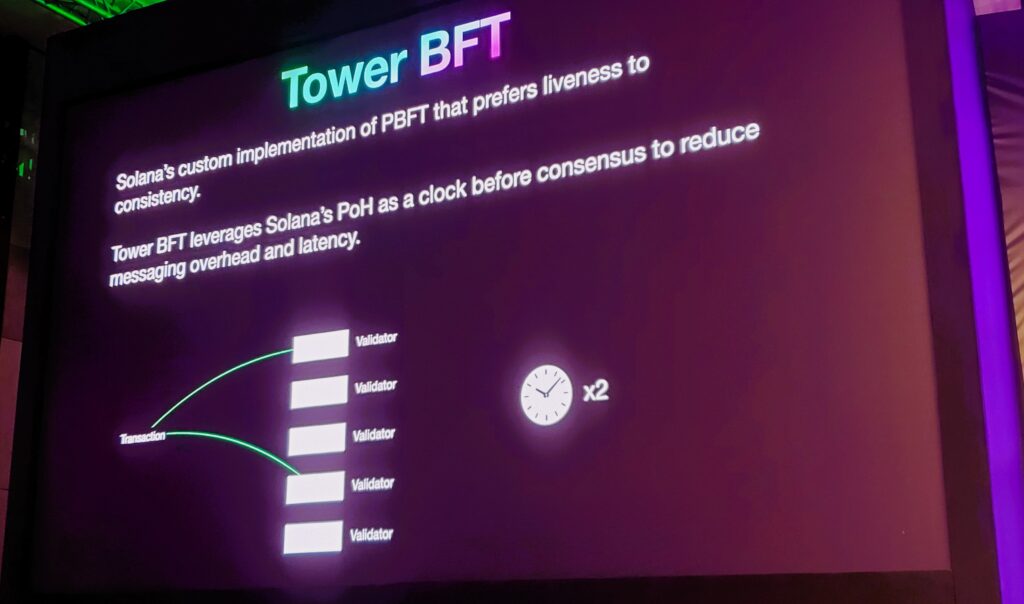
Tower BFT is an important component of Solana. It is critical in guaranteeing the network’s security and dependability. Tower BFT, Solana’s bespoke PBFT implementation that prioritises liveness over consistency. To decrease communications overhead and latency, Tower BFT uses Solana’s PoH as a clock before consensus.
Solana implements a PBFT derivation, but with one major change. Proof of History (PoH) is a worldwide repository of time before consensus. The PoH serves as the network clock of time in our implementation of PBFT, and the exponentially growing time-outs used by replicas in PBFT may be computed and enforced in the PoH itself. PoH is a Sequential Hash Function that implements a Verifiable Delay Function.
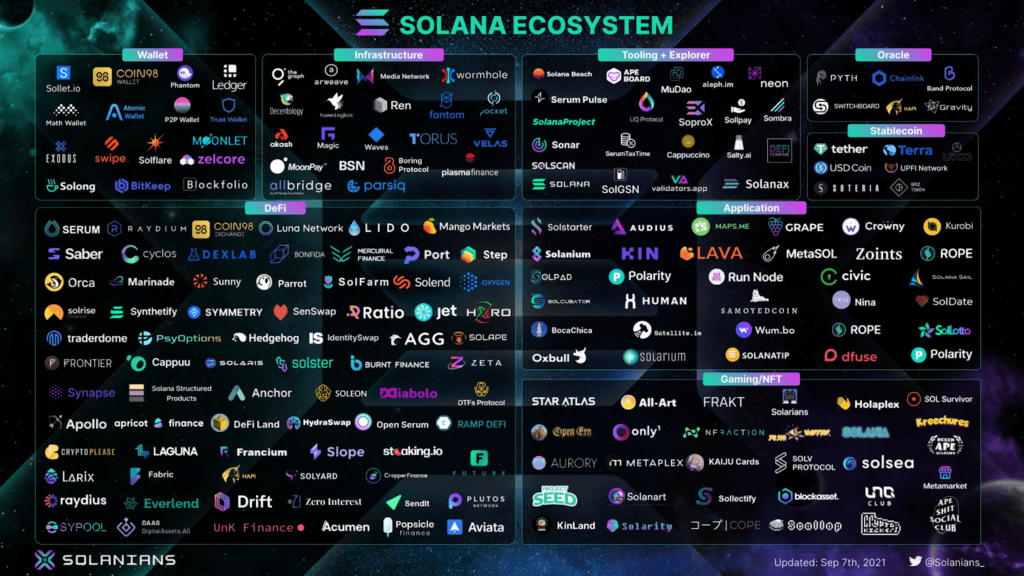
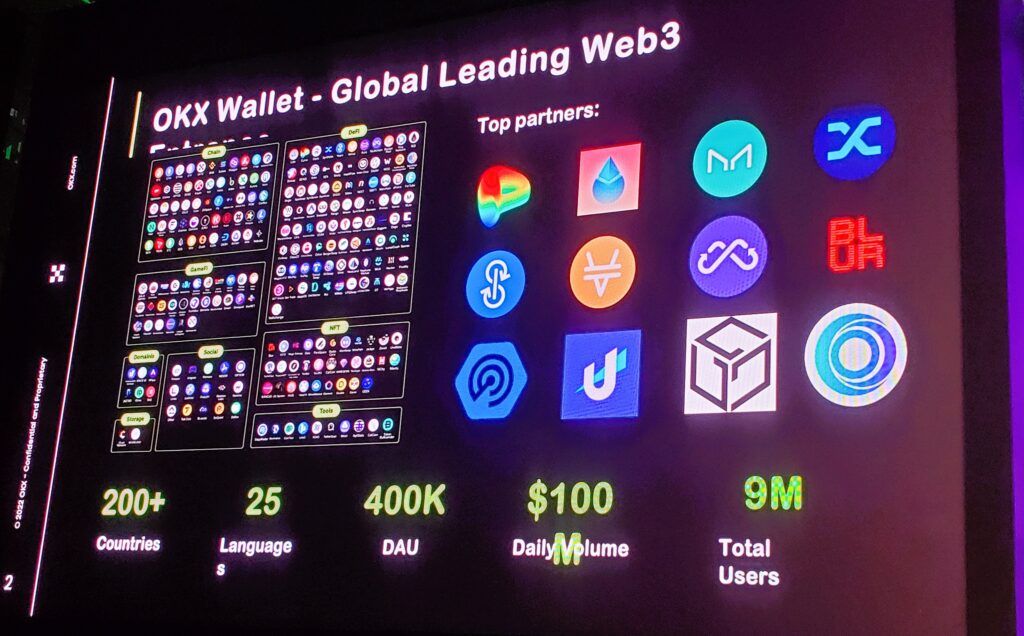
OKX Web3 was the Presenting Sponsor of Solana Hacker House Mumbai, with OKX Web3 was prominent throughout the event, with BD Director Shusen Yang addressing the stage to demonstrate the OKX Wallet and give insights on the company’s ambitions to expand its wallet services in India. OKX’s dedication to tapping into India’s growing developer community and investigating the possibilities of Web3 apps in the area was underlined in his address.
OKX BD Director Shusen Yang said: “The one-stop solution of OKX Wallet brings a new evolution to the EVM chains and non-EVM chains, which allows crypto assets to flow freely across various blockchains.”
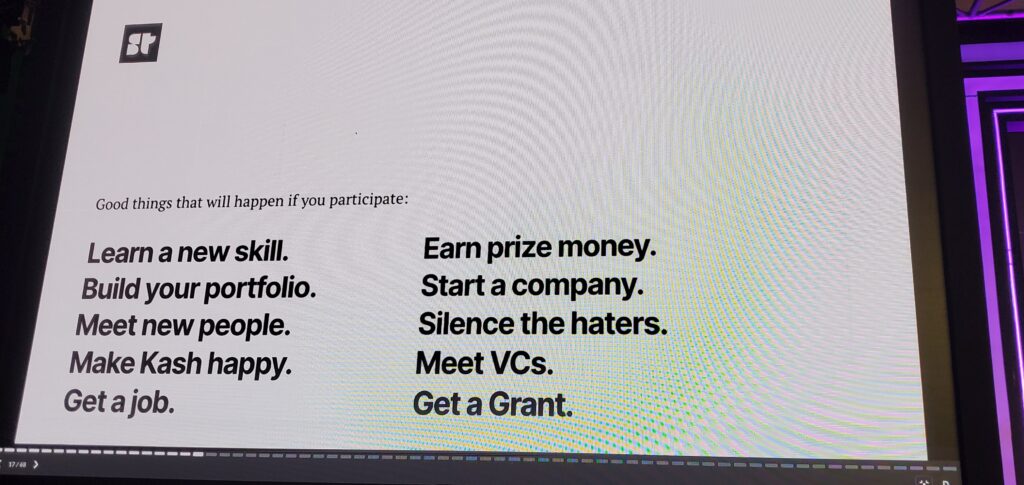
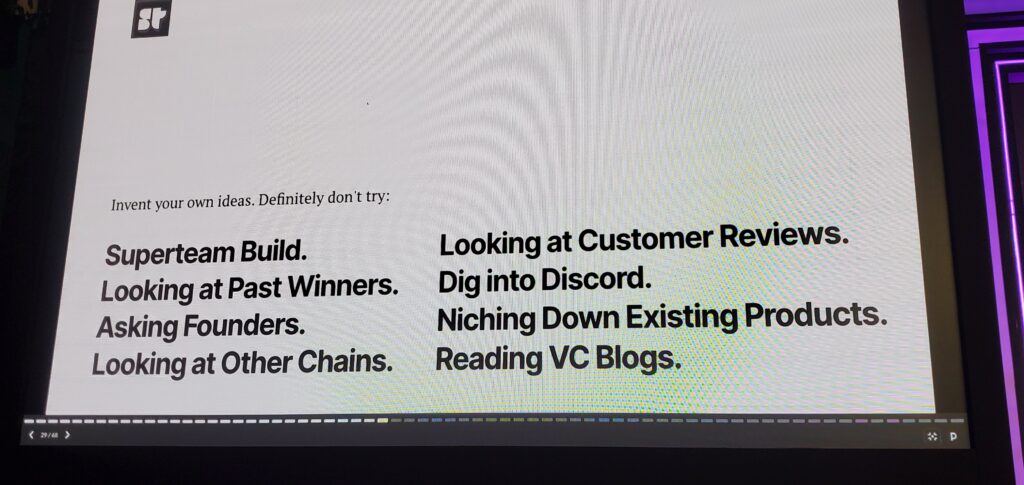
Superteam founding member Kash Dhanda believes in Good things happen at SOLANA, educated the delegates on how to survive the startup life, how to become famous in social media, why reading and research is important and how to solve problems, making Kash happy.
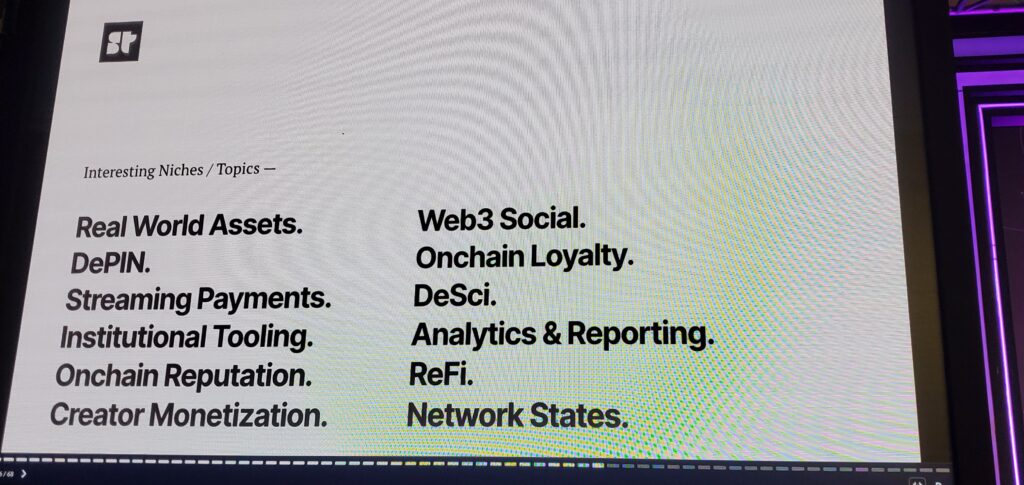
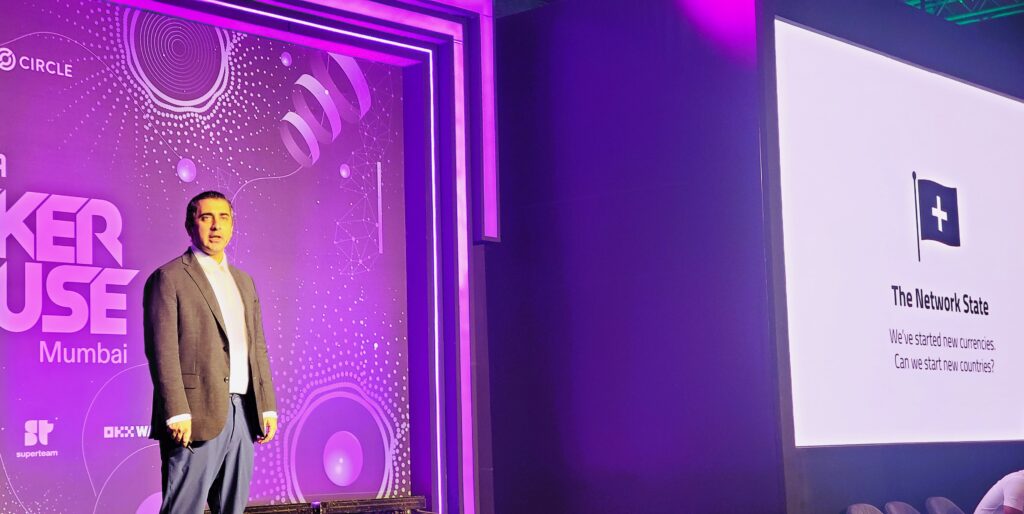
The phrase “Network State,” invented by Balaji Srinivasan presented the future of citizens, communities, ecosystems, currencies and culture, A network state is a social network with an agreed-upon leader, an integrated cryptocurrency, a clear mission, a strong sense of national identity, and a strategy to crowdfund territory.
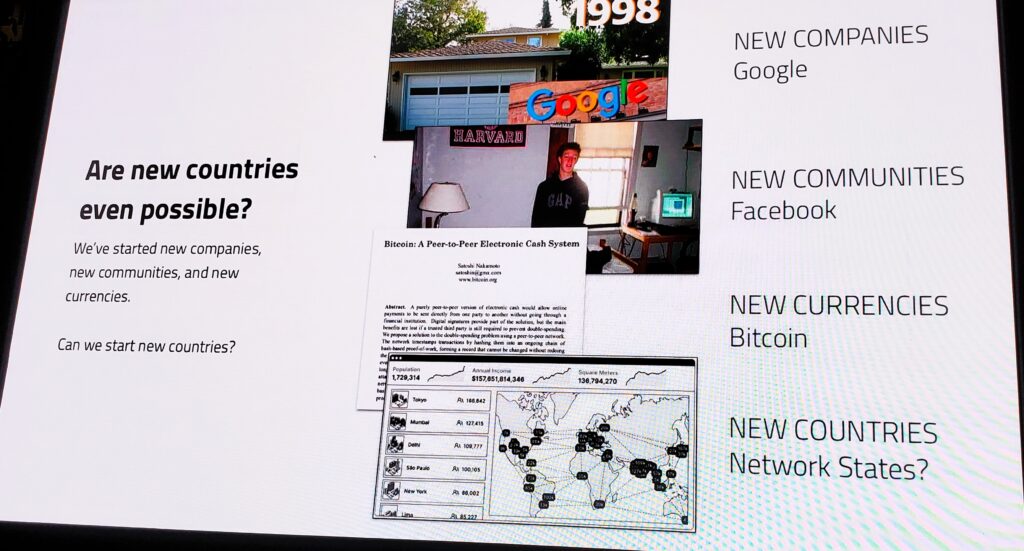
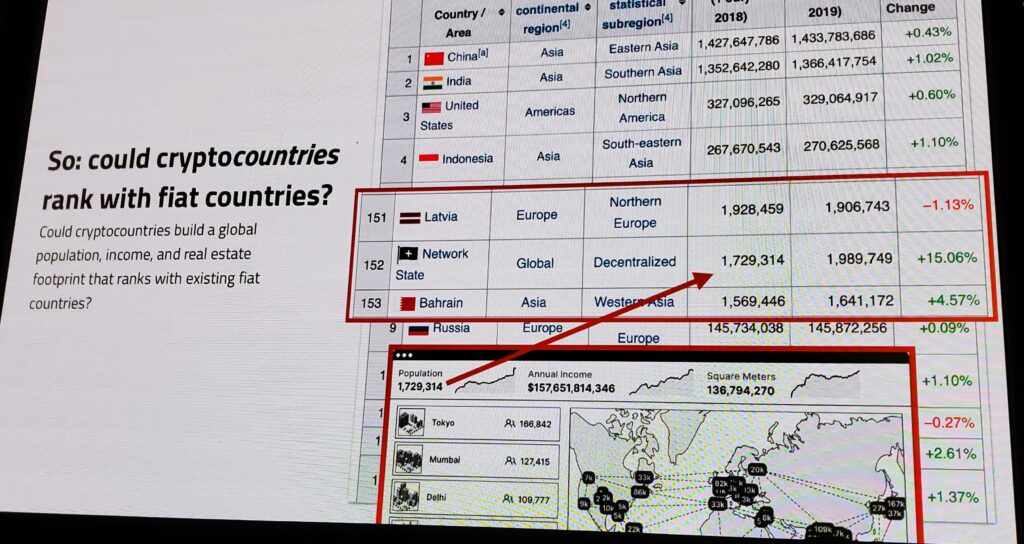
The purpose of the Network States is to propose a new type of political organization that leverages the power of the internet and social networks to create more effective and inclusive governance. Srinivasan argues that the current nation-state model is outdated and that network states could offer a more flexible and responsive form of government. The book also explores the challenges and opportunities of implementing such a model and how it could shape the future of the internet and society. It’s a sort of manifesto for a new political and social order that leverages the power of technology.
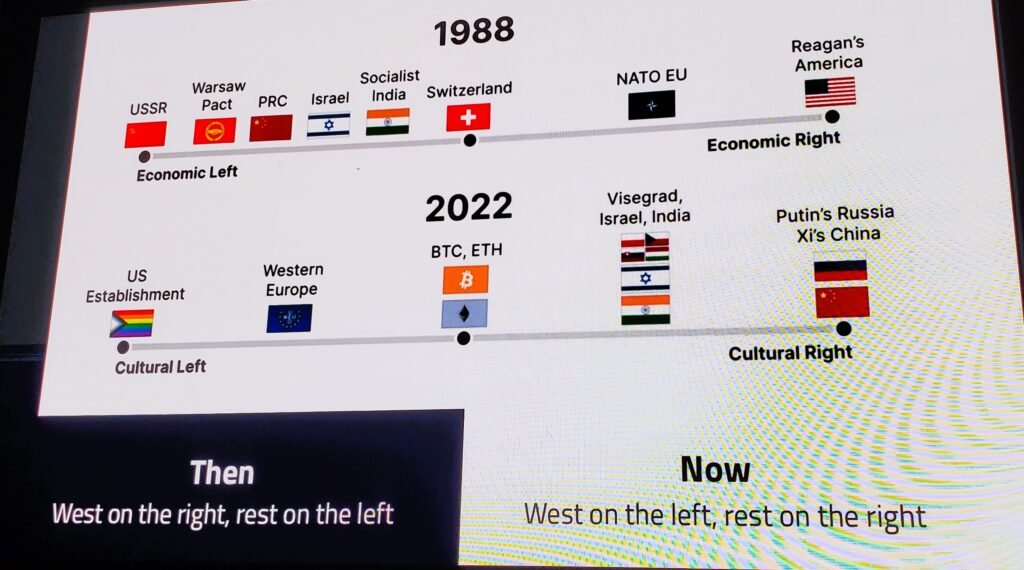
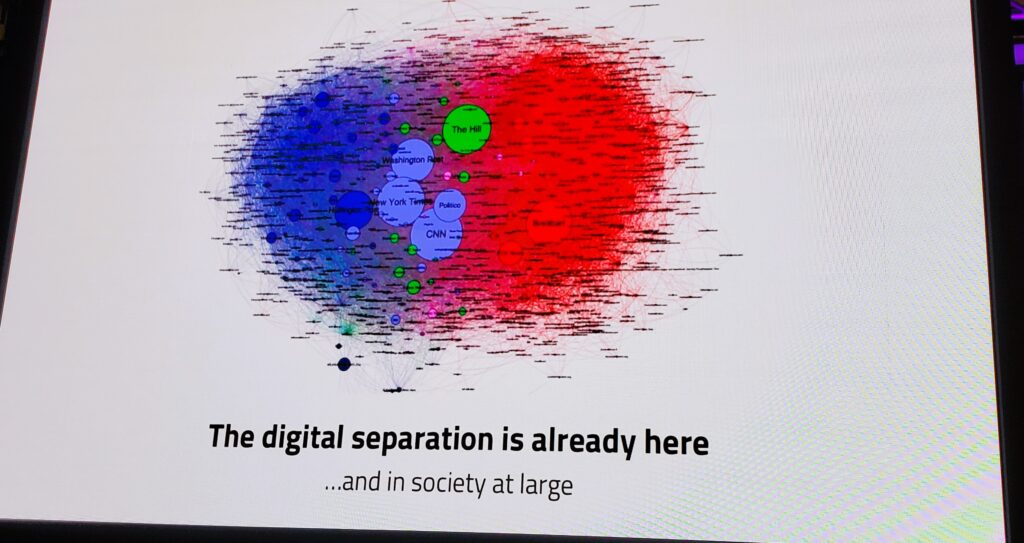
It could lead to more democratic, efficient, and flexible governance, so imagine a world where nations are defined not by geography but by shared values and technology.
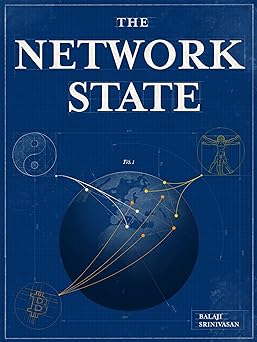
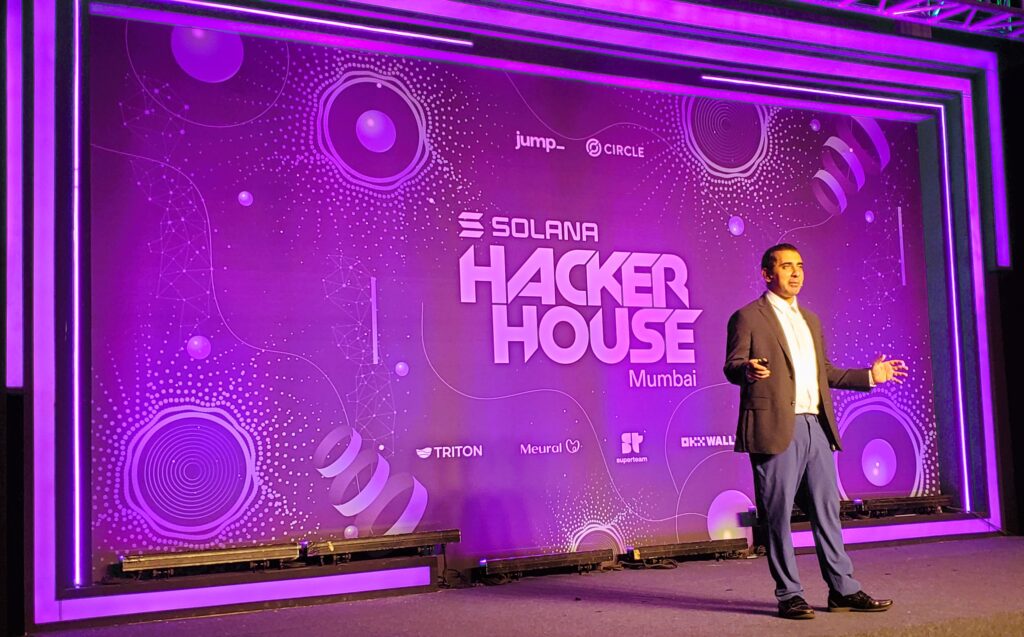
The Network States initiative seeks to offer a new style of political organisation that uses the power of the internet and social networks to produce more effective and inclusive government. According to Srinivasan, the present nation-state paradigm is obsolete, and network states might provide a more flexible and responsive form of government.
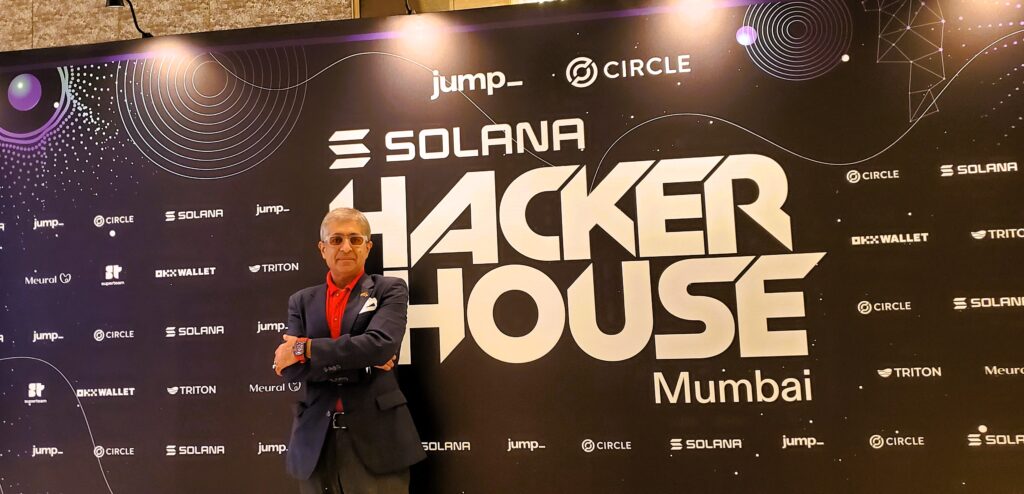
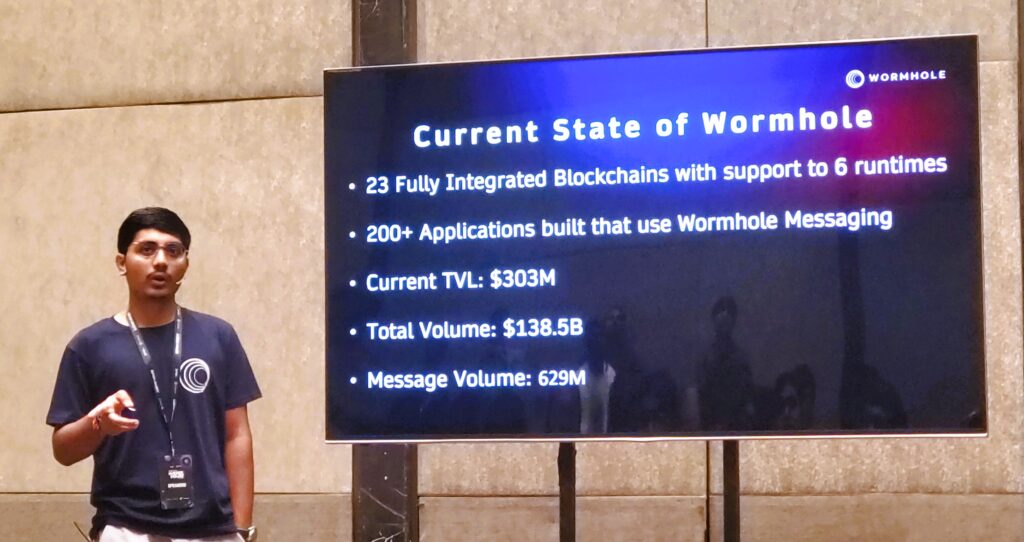
Wormhole team gave a workshop, who have been a pioneer in cross-chain since October 2020 and continues to adapt to suit the evolving demands of Web3. The Wormhole interoperability protocol, which leverages the power of generic communications and a single SDK, making cross-chain mobility more feature-rich than ever. Learn more about expanding your user base by going cross-chain.
Wormhole gives easy access to each network’s flourishing DeFi and NFT ecosystems by allowing users to transmit assets to and from any of the nine supported chains without double-wrapping the item! Solana, Ethereum, Terra, Binance, Polygon, Avalanch, and many more are examples of existing chains.
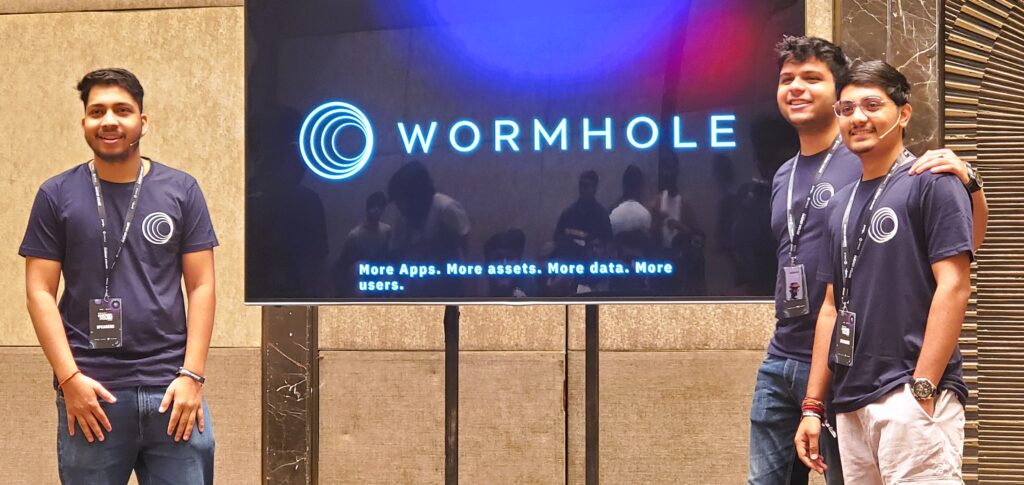
Wormhole is a powerful tool that can help to improve the functionality and usability of blockchains. It can help to make transactions faster and cheaper, increase liquidity, and promote interoperability. The benefits can help to make blockchains more attractive to users and developers, and can help to accelerate the growth of the blockchain ecosystem.
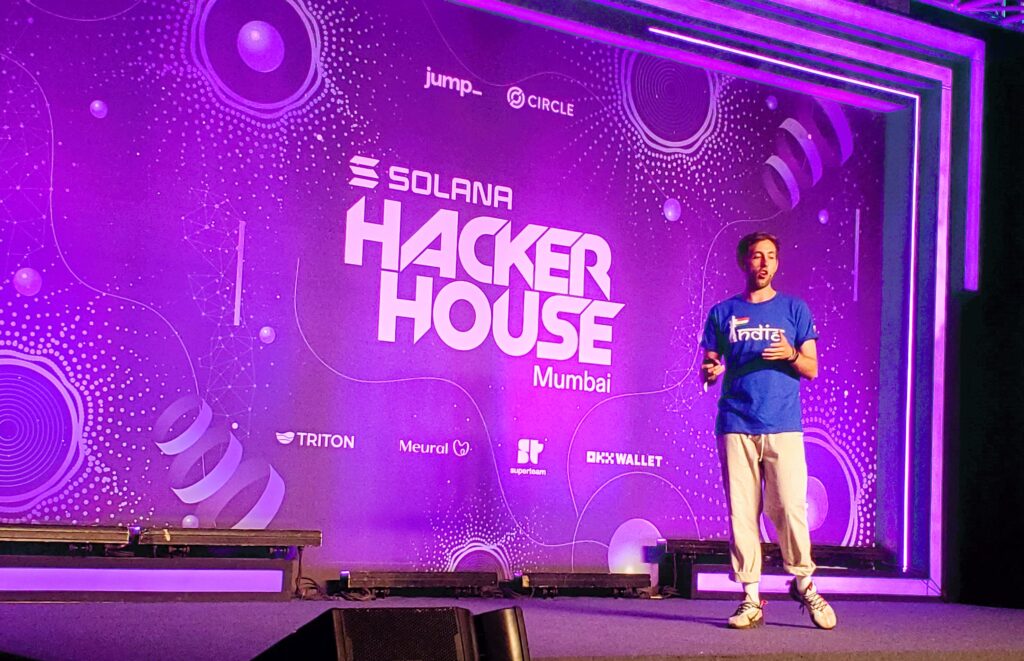
Andrea Baglioni – Head of Grants – Solana Foundation spoke about The Solana Foundation Grants Programme. The funds activities are aimed at decentralising, developing, and safeguarding the Solana network based on milestones. The Solana Foundation Grants Programme funds activities aiming at decentralising, developing, and safeguarding the Solana network based on milestones.
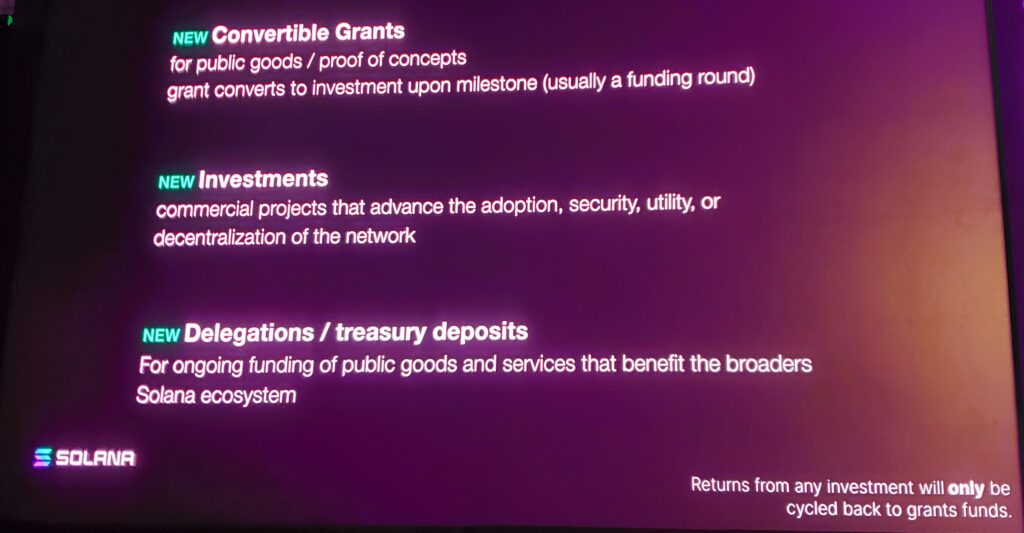
Solana supports open-source initiatives that provide community goods and allow other ecosystem players to learn from and expand on your work. The Solana Foundation accepts applications from everyone. Individuals, independent teams, governments, organisations, businesses, institutions, and academics are all included.
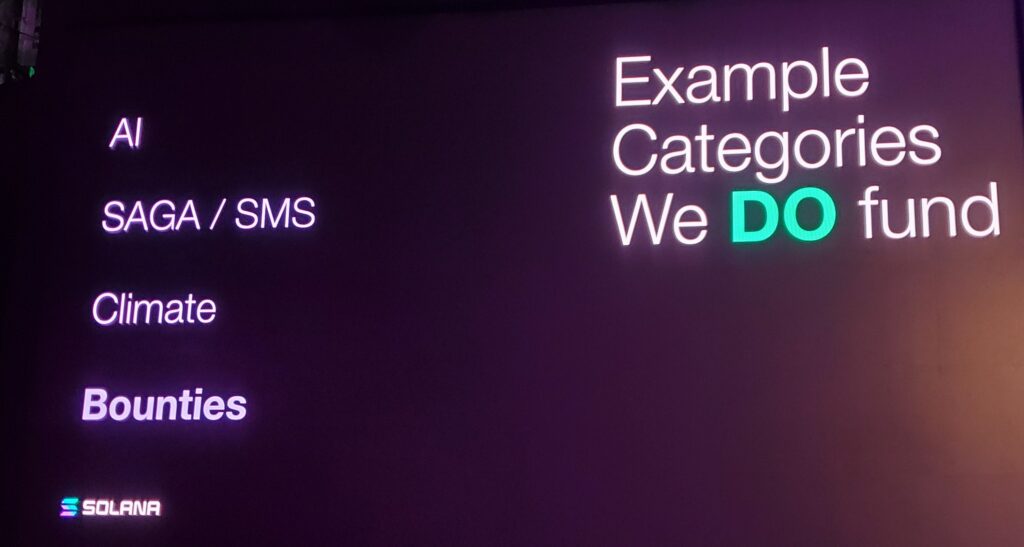
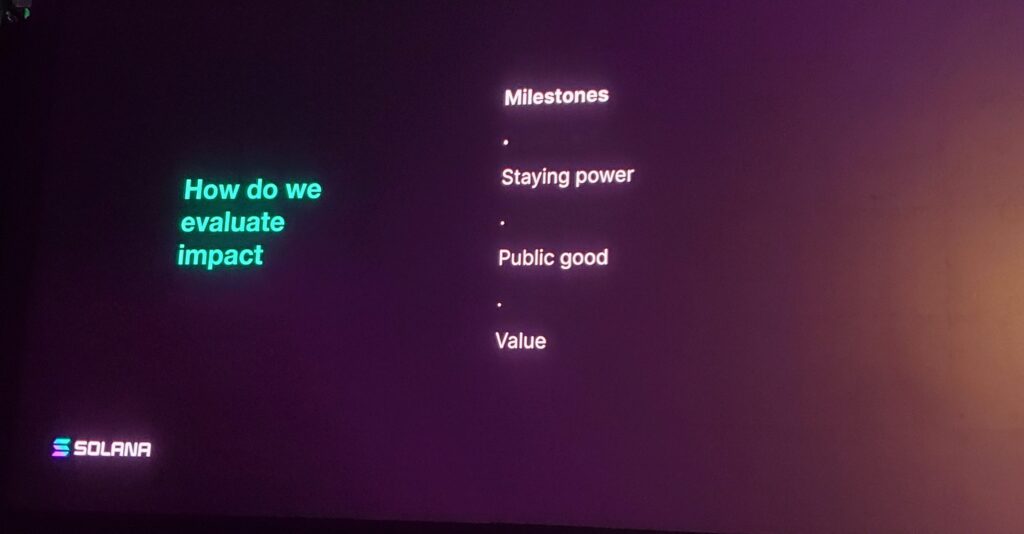
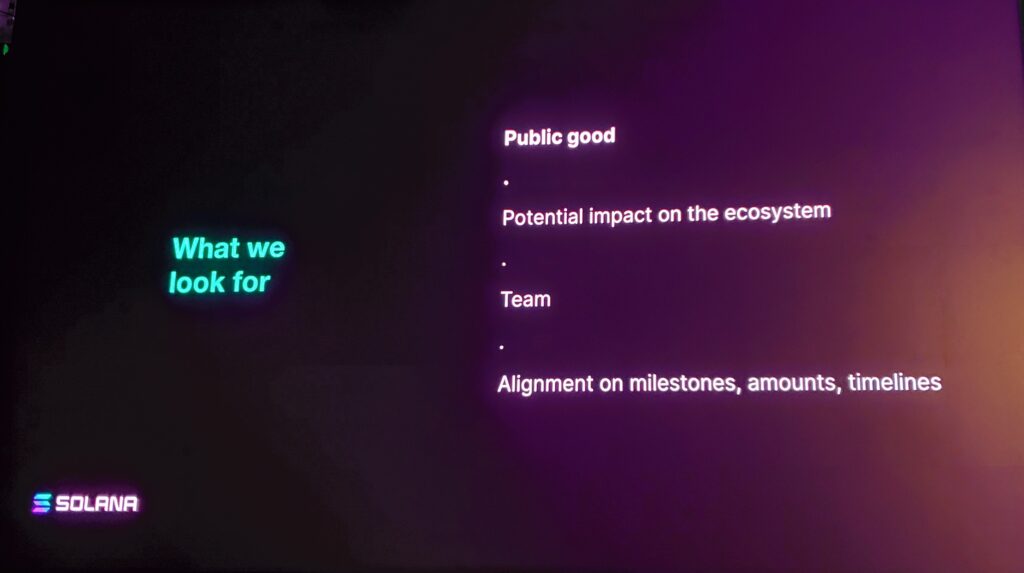
The award is available for both new and existing initiatives. To be eligible, initiatives have to be open to the public and accessible to anybody. When they are released, they must be open-source and provide source code to the Solana Foundation. In addition, qualified initiatives must specify the precise amount and explain how the funds will be used. Notably, the award is simply one of the Foundation’s financing options. Hackathons, Metaplex, Solana Ventures, and ecosystem funds are among the others. Solana had earlier said
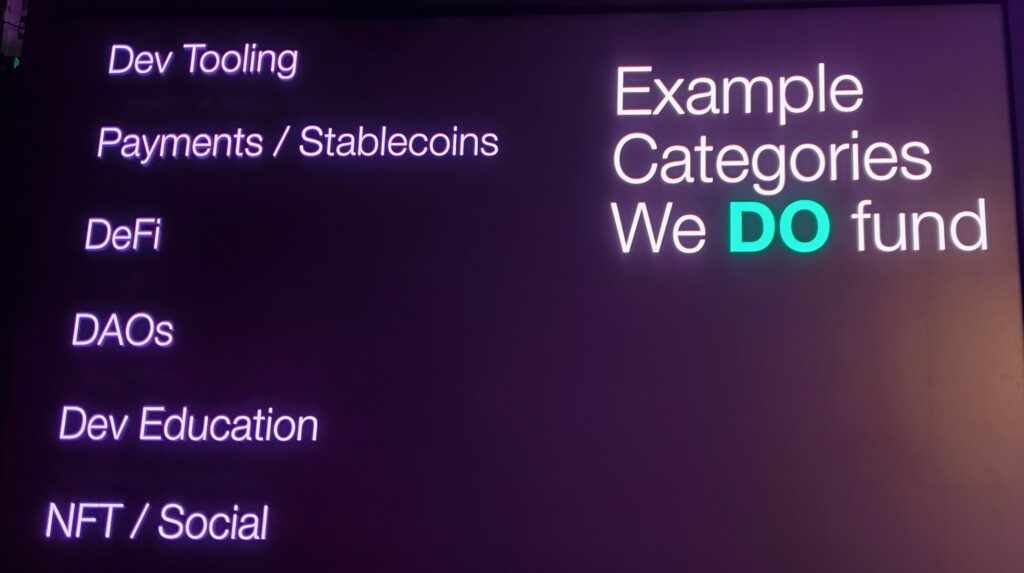
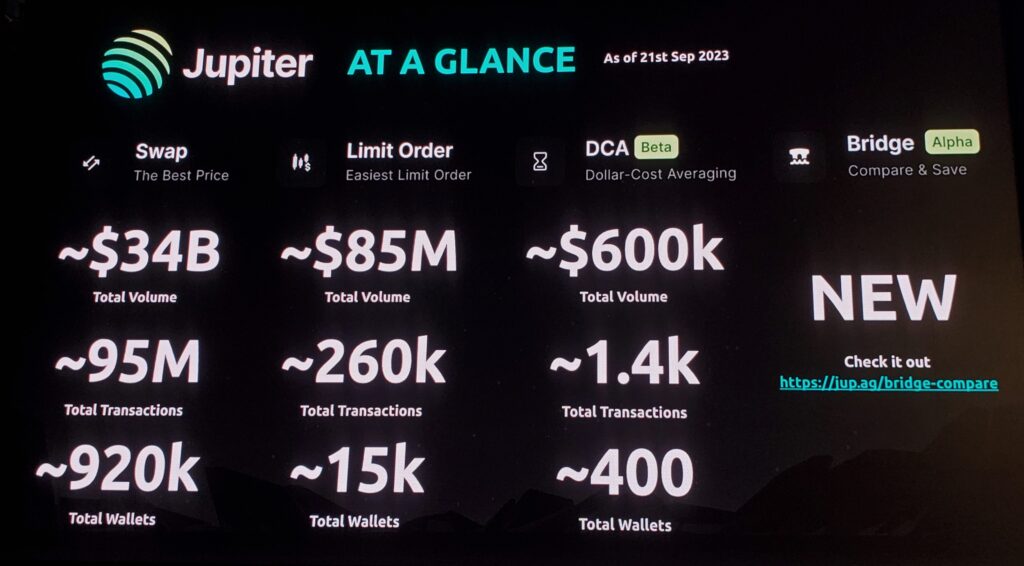
Jupiter Aggregator is the greatest swap aggregator and infrastructure for Solana, enabling the best pricing, token selection, and user experience for all users and developers. Jupiter is Solana’s primary liquidity aggregator, providing the most tokens and the greatest route discovery between any token pair. Jupiter, as a liquidity aggregator on Solana, gathers the best token values from several decentralised exchanges by linking all DEX markets and AMM pools, regardless of supplier. It has processed over $20 billion in transaction volume and over 140,000 token swaps across over 4,100 trading pairings.
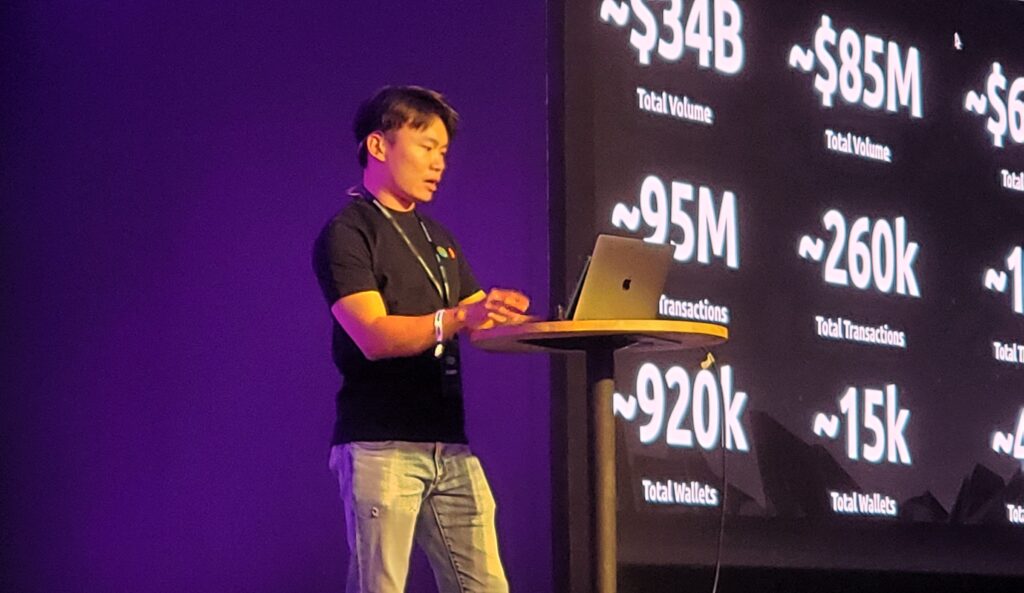
Jupiter, as a liquidity aggregator on Solana, gathers the best token values from several decentralised exchanges by linking all DEX markets and AMM pools, regardless of supplier. This smart routing mechanism analyses prices routed through an intermediate token, allowing the detection of pricing inefficiencies and market volatility. Jupiter also automatically divides deals into smaller trade sizes in order to obtain better rates for bigger size trades and trades with tokens with limited liquidity across several exchanges.
